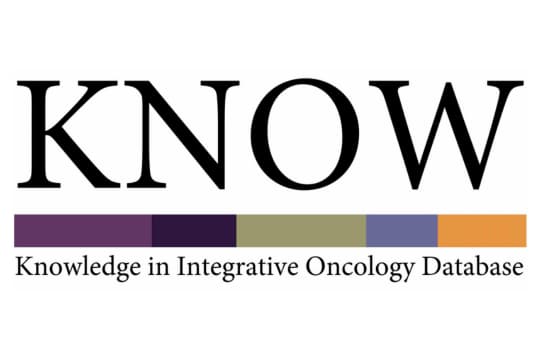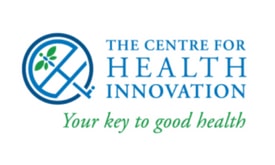This food and dietary supplement may reduce prostate cancer spread, improve survival in breast cancer, and lower the risk of several cancers.
Are you a health professional?
This section does not replicate the other information on this topic but provides additional details or context most relevant to professionals.
Modes of action: lignans as phytoestrogens
Flaxseed is the richest dietary source of lignan precursors. Of several types of lignans produced in the colon from precursors, two are phytoestrogens. These plant estrogens are considered to have weak estrogenic activity—they bind to estrogen receptors and change the expression of genes that respond to estrogen. Although they can bind to estrogen receptors, their ability to influence estrogen responsive genes is weaker than endogenous estrogen. In fact, lignan phytoestrogens may actually “block or antagonize the effects of estrogen in some tissues.”1Drake VJ. Lignans. Linus Pauling Institute. Oregon State University. March 2021. Viewed October 12, 2021.
Scientists are interested in the anti-estrogenic effect of lignans in reproductive tissue, as it may help reduce the risk of hormone-related cancers (breast, uterine, ovarian, and prostate). While concerns have been raised about lignan exposure and potential impacts for people with hormone-sensitive cancers, a 2013 review of studies of flaxseed and breast cancer concluded that most studies have found no change in levels of endogenous estrogen, and those that did find changes found decreases in serum estrogen levels, suggesting reduced exposure to endogenous estrogen over time with intake of flaxseed.2Flower G, Fritz H et al. Flax and breast cancer: a systematic review. Integrative Cancer Therapies. 2014 May;13(3):181-92.
In addition, American Institute for Cancer Research (AICR) consultant Karen Collins, MS, RDN, CDN, FAND, advises: “The evidence now really supports looking at compounds like the lignans in flaxseed as SERMS (receptor modulators). I encourage people to stop using the term ‘phytoestrogen’, since this correctly refers to similarities in chemical structure, but is easily misunderstood to suggest a consistent pro-estrogen effect in the body.”3Collins K. Email communication with Laura Pole. November 16, 2018.
Preclinical evidence
Notable preclinical evidence is listed here; clinical evidence is in How can flaxseed help you? What the research says ›
Improving treatment outcomes
Adenocarcinoma
- Greater apoptosis in adenocarcinoma cells exposed to flaxseed orbitides (peptides)4Zou X, Li J, et al. Orbitides isolated from flaxseed induce apoptosis against SGC-7901 adenocarcinoma cells. International Journal of Food Sciences and Nutrition. 2020 Dec;71(8):929-939.
Gynecological cancer, including ovarian cancer
- Reduced cervical tumor volume and weight in mice with flax oil5Deshpande R, Raina P et al. Flax seed oil reduced tumor growth, modulated immune responses and decreased HPV E6 and E7 oncoprotein expression in a murine model of ectopic cervical cancer. Prostaglandins & Other Lipid Mediators. 2019 Apr 5. pii: S1098-8823(18)30109-6.
- Greater apoptosis and a decrease in angiogenesis in ovarian tumors in chickens fed flaxseed-supplemented diets (15% whole flaxseed, 10% defatted flaxseed meal, 5% flax oil) compared with a control diet6Pal P, Hales K, Petrik J, Hales DB. Pro-apoptotic and anti-angiogenic actions of 2-methoxyestradiol and docosahexaenoic acid, the biologically derived active compounds from flaxseed diet, in preventing ovarian cancer. Journal of Ovarian Research. 2019 May 25;12(1):49.
- Downregulation of some genes associated with ovarian cancer development and progression in tumors from hens fed a diet containing 10% flaxseeds compared with a control diet7Hales KH, Speckman SC, Kurrey NK, Hales DB. Uncovering molecular events associated with the chemosuppressive effects of flaxseed: a microarray analysis of the laying hen model of ovarian cancer. BMC Genomics. 2014 Aug 24;15(1):709.
- Induction of apoptosis and decrease in angiogenesis in human ovarian cancer cells exposed to flax metabolites (2-methoxyestradiol and docosahexaenoic acid/DHA)8Pal P, Hales K, Petrik J, Hales DB. Pro-apoptotic and anti-angiogenic actions of 2-methoxyestradiol and docosahexaenoic acid, the biologically derived active compounds from flaxseed diet, in preventing ovarian cancer. Journal of Ovarian Research. 2019 May 25;12(1):49.
- Fewer late-stage ovarian tumors and lower levels of prostaglandin E2, an inflammatory substance, in hens fed a diet containing 10% flaxseeds9Eilati E, Hales K et al. Flaxseed enriched diet-mediated reduction in ovarian cancer severity is correlated to the reduction of prostaglandin E(2) in laying hen ovaries. Prostaglandins, Leukotrienes, and Essential Fatty Acids. 2013 Sep;89(4):179-87.
Optimizing your body terrain
Blood sugar and insulin resistance
- Lower serum glucose levels and improvement in insulin sensitisation in mice given flaxseed oil10Bashir S, Ali S, Khan F. Partial reversal of obesity-induced insulin resistance owing to anti-inflammatory immunomodulatory potential of flaxseed oil. Immunological Investigations. 2015;44(5):451-69.
Inflammation
- Lower markers of inflammation in rats with ovarian-induced osteoporosis fed flaxseed and flax oil11Abdelkarem HM, El-Kader MMA, Kasen SA. Manipulation of flaxseed inhibits tumor necrosis factor-alpha and interleukin-6 production in ovarian-induced osteoporosis. Saudi Medical Journal. 2011 Apr;32(4):369-75.
- Less obesity-related inflammation in mice given flaxseed oil12Bashir S, Ali S, Khan F. Partial reversal of obesity-induced insulin resistance owing to anti-inflammatory immunomodulatory potential of flaxseed oil. Immunological Investigations. 2015;44(5):451-69.
Managing side effects and promoting wellness: preclinical evidence
Radiotherapy damage
- Less lung damage from radiation therapy in cell and animal studies with the lignan secoisolariciresinol diglucoside13Velalopoulou A, Tyagi S, Pietrofesa RA, Arguiri E, Christofidou-Solomidou M. The flaxseed-derived lignan phenolic secoisolariciresinol diglucoside (SDG) protects non-malignant lung cells from radiation damage. International Journal of Molecular Sciences. 2015 Dec 22;17(1). pii: E7; Pietrofesa R, Turowski J et al. Radiation mitigating properties of the lignan component in flaxseed. BMC Cancer. 2013 Apr 4;13:179.
Reducing cancer risk
- Lower incidence of aberrant crypt foci with use of flaxseed meal and flaxseed oil in rats compared to a control diet14Williams D, Verghese M, et al. Flax seed oil and flax seed meal reduce the formation of aberrant crypt foci (ACF) in azoxymethane-induced colon cancer in Fisher 344 male rats. Food and Chemical Toxicology. 2007 Jan;45(1):153-9.
Helpful links for professionals

Subscription required

Kajla P, Sharma A, Sood DR. Flaxseed-a potential functional food source. Journal of Food Science and Technology. 2015 Apr;52(4):1857-71.
Health professional comment
We invite health professionals to contribute expertise or send us questions.
"*" indicates required fields
References


